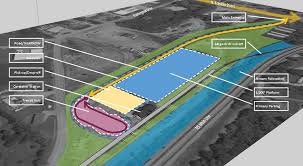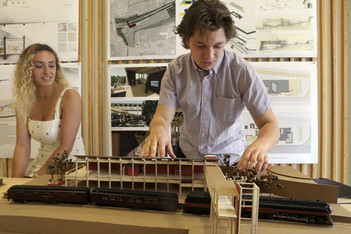Nothing ventured, nothing trained
- meganeldertaylor
- Mar 11, 2021
- 3 min read
Updated: Apr 1, 2021
This state budget was months late thanks to the pandemic, but when it came out, there was significant money to help get passenger rail deeper into Southwest Virginia. Currently, if a person wants to head from the NRV to DC on the rail line, they have to take a 6:40am bus from Virginia Tech's campus (parking not included) to the Roanoke station then wait about an hour, with no indoor facilities, for the train. The money from the state is an important step in making sure that the people of the NRV can avail themselves of a stop on the rail line, rather than trying to navigate the bus lines and trains.
The NRV stop will be an extension of the line that currently connects Roanoke to DC. It'll be an early morning stop for anyone looking to spend a day, or weekend, in the nation's capitol, but it does connect the NRV to much of western Virginia as well, with stops in Lynchburg, Charlottesville, Culpeper, Manassas, and Burke Centre.

But the state needs a strong partnership with the local governments and stakeholders to make sure that this will work. If signed by the governor, SB1212 from Sen. John Edwards, D-Roanoke and HB1893 from Del. Chris Hurst, D-Blacksburg, would create a New River Valley Passenger Rail Station Authority. This is an important piece of the puzzle because it allows local governments and universities to contribute money and sell bonds towards the effort of getting passenger rail here.
In 2019, the Town of Christiansburg paid $200,000 for land by the Aquatic Center to add to the 1.2 acres bought in 2016 - all told this will give them about 7 acres to build a railway station and add parking. The Passenger Rail Authority will be able to fund the building of the station and own the building once complete. Construction on the station will be a time consuming task, so it's a positive move to be able to start fundraising while NorfolkSouthern continues to study needed rail line improvements. The current freight that goes through the NRV doesn't mind being jostled around like passengers will. So some sections of track may need to be replaced or repaired. Completing repairs and building the station at the same time will have the line up and running faster.
This Rail Authority is the first of its kind in Virginia. Part of the reason that passenger rail is slow to grow is because before this, a single municipality was left trying to cover the bill. In the case of Roanoke, the state built the platform but the City of Roanoke has built the station up. Knowing that this station will be a boon to all of us in the NRV, the bills are a way to create a coalition that can cover expenses and share in the responsibility of running and maintenance. If this is signed by the Governor, it's likely to become a regular way for funding and planning future railway expansion in Virginia.
If you aren't convinced that we need a railway station in the NRV - I encourage you to drive to Roanoke and take the train up to DC for a weekend. It's a fantastic experience and relatively inexpensive. You can bring food and beverages on the train and enjoy them whenever. Trains have wifi and charging plugs now, so you can work while you travel. Seats are positively expansive compared to airlines, and best of all, you don't have to pay for parking in DC while you visit! With 81 becoming more and more clogged with trucks, train travel is definitely the way to go. Connecting northern Virginia to the NRV via train is going to become more and more important, especially now that, according to Lary Hincker, “50 percent of the enrollment of Virginia Tech comes from points north, so as this country continues to adopt and promote greater train travel we see this as an important connection to the rest of the East Coast where passenger rail is super popular.”
High speed rail plans are being developed in connecting states like Tennessee, so the rail line eventually may connect people south and westerly as well. A Commonwealth. Corridor (see above) has been proposed to keep the line going as far as Bristol, making race weekends a breeze.
The Hilltopper Route was canceled in 1979 connecting Kentucky to Boston, but advocates of the Commonwealth Corridor say the line is ready to be restored through Virginia. The first step, a study of the feasibility of the Commonwealth Corridor was approved by the state legislation in 2020. In the meantime, we'll all enjoy less traffic on game weekends and an easy, enjoyable way to visit the state and DC without using 81.
Sources:





















Comments